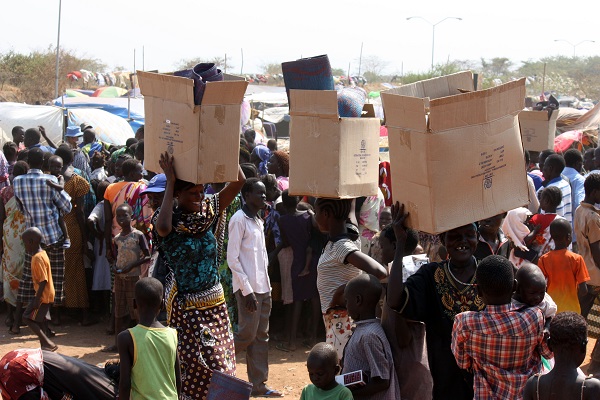Juba, (Asian independent) The World Food Programme (WFP) has called for the safe and secure passage of humanitarian assistance to the conflict-hit areas of South Sudan’s Upper Nile and Jonglei states amid renewed tension which has displaced thousands of families and left an unknown number of civilians dead or injured.
In a statement issued here on Friday, the WFP said it has been forced to suspend relief operations as a result of the deteriorating security situation in parts of the two states, reports Xinhua news agency.
“Due to deterioration in the security situation along the White Nile, WFP has had to suspend its barge movement between Adok and Malakal as the waterways have become inaccessible, to the detriment of communities in the firing line.
“Several attempts to negotiate access to reach communities facing an emergency and catastrophic levels of food insecurity have failed,” the statement said.
WFP said one of its convoys carrying 1,151 metric tons of food meant for communities in Fangak, Canal/Pigi, and Panyikang counties were forced to return last week after clashes between conflicting parties resumed.
Adeyinka Badejo, acting Country Director for WFP in South Sudan said the three counties already have some of the highest instances of food insecurity in the country with 55 to 60 per cent of the population of Fangak and Canal/Pigi counties expected to be in an emergency or famine-like conditions by now, and unable to meet their food needs.
“It is completely unacceptable that we have WFP convoys carrying food assistance that can save lives but are simply unable to get through. All parties to the conflict need to respect international humanitarian law and allow safe passage of WFP and other humanitarian cargo.
“We are running out of time to prevent people from dying of hunger,” Badejo said.
WFP said prior to this latest outbreak of conflict, there had been sustained efforts to build food security and resilience for people in Fangak, Canal/Pigi, and Panyikang counties in which it supported the construction of 16 kms of dykes around both Old and New Fangak, protecting communities from the flood waters that have been sweeping through communities across the north of the country for the past four years.








